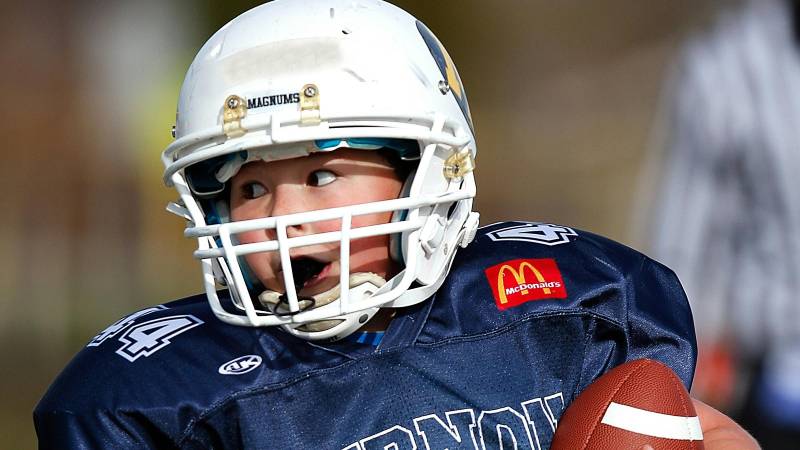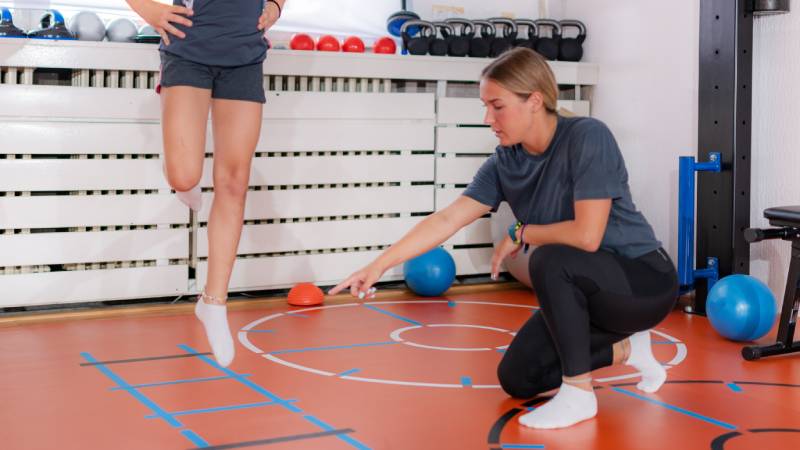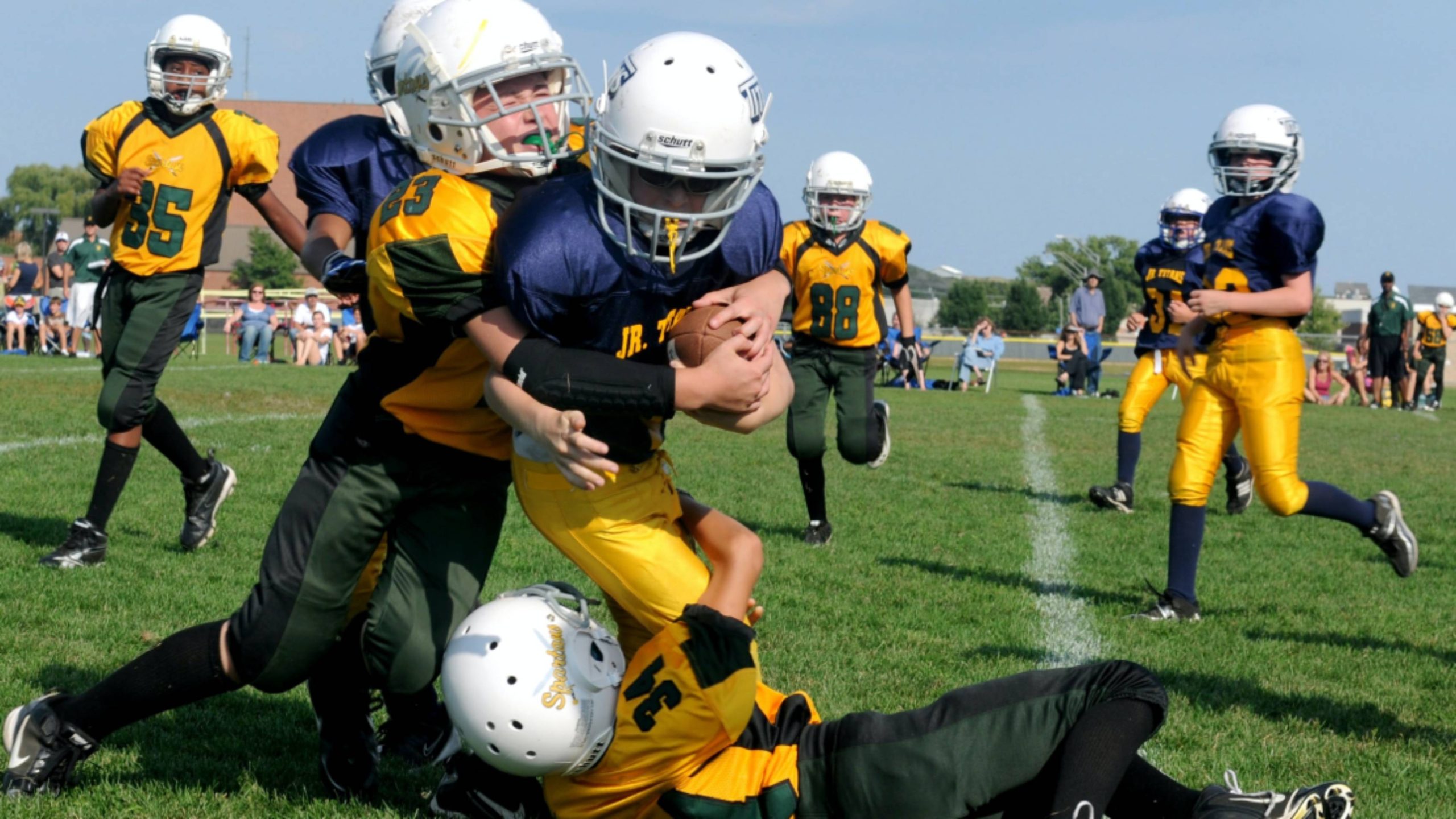Raising awareness of concussions in sport

Concussion awareness in the sporting world is essential to protect the health of athletes. These mild brain injuries, caused by impacts to the head, can have serious and lasting consequences.
In order to protect athletes and ensure their long-term well-being, it is crucial to implement effective strategies to raise awareness among the three key pillars: athletes, coaches and parents [1].
Raising athletes' awareness about concussion
Athletes are at the heart of the sporting environment and play an essential role in concussion prevention. It is therefore vital to make them aware of the risks, symptoms and consequences of concussion.
Education from an early age: Integrate concussion education modules into sports programs from an early age. This will enable athletes to develop an early understanding of the risks and the importance of reporting any suspicious symptoms.
Examples of educational activities:
- Interactive workshops on concussions led by health professionals or former athletes who have suffered concussions.
- Educational videos and animations on the signs and symptoms of concussion.
- Use of games and quizzes to make learning fun and engaging.
Use of accessible language: Adapt awareness messages to the athletes’ level of understanding, using simple, direct language, accompanied by concrete examples and attractive visuals.
Tips for adapting language:
- Avoid complex medical jargon and use familiar, easy-to-understand terms.
- Use concrete examples and real-life situations to illustrate concepts.
- Accompany verbal explanations with attractive visuals, such as images, infographics or videos.
Promote a culture of openness: Encourage athletes to report concussion symptoms openly, without fear of reprisal or judgment, by creating an environment of trust and support.
Measures to foster a culture of openness:
- Make athletes aware of the potential risks of minimizing or concealing concussion symptoms.
- Establish clear and accessible procedures for reporting concussions to coaches and medical team members.
- Encourage athletes to support each other and create an environment where it’s acceptable to talk about injuries.
Raising athletes' awareness and training coaches to prevent brain injuries
Coaches occupy a key position in concussion prevention, as they are the first to witness potentially dangerous impacts and contacts on the field.
For this reason, it would be appropriate to make comprehensive concussion training mandatory for all coaches, including recognition of signs and symptoms, protocols for removal from the game and procedures for safe return to play.
Coach training content:
- Anatomy and physiology of the brain and explanation of concussion mechanisms.
- Recognition of immediate and short-term signs and symptoms of concussion.
- Protocols for withdrawal from play and procedures for evaluation by a health professional.
- Guidelines for a safe and progressive return to play after a concussion.
- Concussion prevention techniques and promotion of safe, responsible play.
It is also important to organize updates and continuing education workshops for coaches, to keep them informed of the latest research and best practices in concussion prevention and management.
Examples of updates and ongoing training:
- Webinars and conferences led by experts in sports medicine and concussion prevention.
- Hands-on workshops on the evaluation of athletes with suspected concussion.
- Dissemination of new research and updated concussion management protocols.
Finally, encouraging coaches to adopt playing rules and techniques that minimize the risk of head contact and other head injuries is paramount.
Examples of safe playing rules and techniques:
- Adapt rules and training techniques to the age and development level of the athletes.
- Emphasize fair play, respect for opponents and gesture control.
- Encourage tackling techniques that minimize the risk of blows to the head.
- Use high-quality, approved protective equipment, such as helmets and mouthguards.
- Limit the number of high-intensity contacts and incorporate sufficient recovery periods into training sessions and matches.
Involving Parents: Essential Partners in Protecting Athletes
Parents play a crucial role in supporting and protecting their child athletes. Their involvement in concussion awareness is essential.
Parent information sessions: Organize regular information sessions for parents, covering the causes, symptoms and consequences of concussions, as well as the protocols in place to protect their children.
Topics covered in parent information sessions:
- Clear explanation of concussions and their impact on athletes’ health.
- Recognition of the immediate and long-term signs and symptoms of concussion in children.
- Importance of promptly reporting any suspicious symptoms to a coach or health professional.
- Protocols for safe withdrawal and return to play implemented by the sports organization.
- Role of parents in communicating with coaches and health professionals.
Accessible resources and tools: Provide parents with accessible resources and tools, such as brochures, websites and mobile applications, to help them learn more about concussions and identify potential signs in their children.
Examples of resources for parents:
- Concussion information brochures and leaflets, written in simple, accessible language
- Websites and mobile applications dedicated to concussion prevention in sport, offering information and advice to parents.
- Concussion management guidelines and protocols implemented by national and provincial sports organizations.
Encourage open communication: Encourage parents to maintain open communication with coaches and health professionals regarding the health and well-being of their child athletes.
Importance of open communication:
- Allow parents to ask questions and get clear information about concussions.
- Promote collaboration between parents, coaches and health professionals to ensure optimal management of athletes in the event of concussion.
- Make parents aware of the importance of being attentive to their children’s verbal and non-verbal signals that may indicate a concussion.
Raising Athletes' Awareness of Concussion: Towards a Collective Commitment
By educating and empowering athletes, training and informing coaches, and involving and supporting parents, we can create a safer sporting environment where the health and well-being of athletes are at the forefront.
Sources :
[1] Gouvernement de la santé publique du Canada.(2019). Compréhension et sensibilisation aux commotions cérébrales liées au sport, en mettant l’accent sur les jeunes. Consulted at the following URL :
https://publications.gc.ca/collections/collection_2019/aspc-phac/H14-310-2019-fra.pdf
Don't miss our new ultimate guide to concussion in sport!
Karl Demers

On the same subject
Concussions, potentially serious brain injuries, have become a growing concern in a variety of areas, including sport and everyday activities. […]
While recognizing symptoms on the field is essential for identifying potentially concussed athletes, initial assessments do not always lead to a […]
Of course, all sports carry a risk of injury. This is even truer when it comes to team sports.


